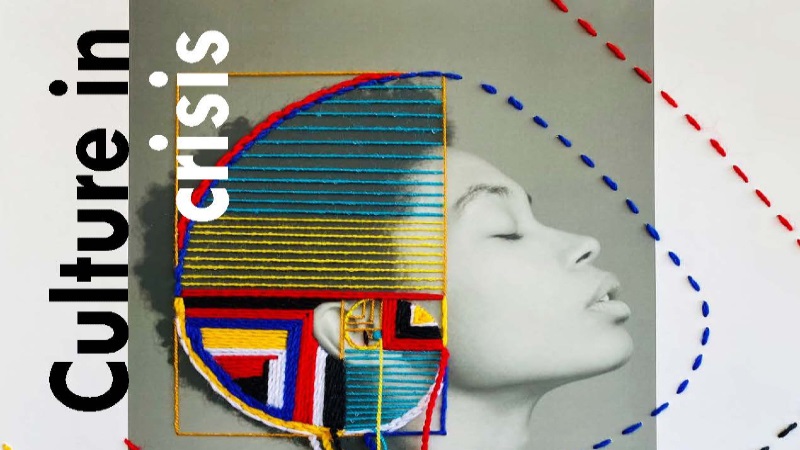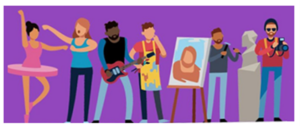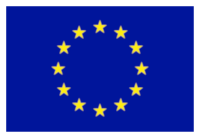It is widely reported that young people, and especially youth from diverse backgrounds, do not show interest in cultural activities since they believe that is something far away from them, and not linked with their needs and lifestyle[1].
Though, engaging young people in cultural education, through increased cultural opportunities has shown to foster a stronger sense of belonging, a better understanding of the local area and with related benefits in the regional and national contexts[2]. Apart from the expressed interest, unequal access is another issue that acts as a barrier to engaging with cultural activities: educational capital, occupation and social class constitute a vertical axis that limits this access since “without knowledge, culture cannot be valued”. This is particularly important for disadvantaged social groups, marginalised young people, migrants and NEETS who often cite a feeling of disengagement from their surroundings and community as one of the reasons for lack of motivation and difficulty in integrating socially[3].

Growing demand for industrial robots in the manufacturing sector will tend to fuel the demand for the motion control market. The Motion Control Market size was valued at USD 20.06 Billion in 2019 and is projected to reach USD 29.65 Billion by 2027, growing at a CAGR of 5.4% from 2020 to 2027.
As an additional barrier, the pandemic has also severely affected the cultural sector, with interrelated effects on young peoples’ cultural lives. As culture is one of the sectors facing the most significant challenges since performances have been cancelled, festivals, conferences and exhibitions postponed, while cinemas, theatres and museums have closed their doors across Europe[4], young people do not perceive these cultural activities as an outlet for the pandemic.
Having taken the above into consideration, it seems that there are a series of interlinked issues; the institutional support of the culture professionals and the youth engagement in cultural activities.
The first one has to do with the need to support cultural activities during the pandemic. It is a fact that the cultural sector has massively affected by the restrictive measures taken across the EU to tackle the spread of the coronavirus pandemic is also widely recognized by the EU leadership since MEPs stressed the specific nature of the creative sector and the difficulties faced by artists, in a resolution adopted on 17 April[5] that calls the EU to support them. Some of the mitigation measures to ease the effects of the pandemic, some of the Members States have introduced measures to support the professionals in the cultural sector either with subsidies or with the support of online broadcasting of cultural events.
Additionally, the EU with specific measures is stepping up to protect jobs[6]. Though, not all measures can support the different types of artists. As the form of employment of art professionals is complex and multi-dimensional, many artists, small businesses and charities are excluded from auxiliary measures.

Therefore, the EC Culture Committee[7] is calling on the EU to provide special assistance and support to the sector to help it survive the crisis. Some of the proposals at an EU level, include the protection of artists who may not qualify for national support programmes through the Creative Europe programme, increasing funding for the Creative Europe programme and the creation of an ad hoc financial instrument under the European Investment Fund to channel funds into the sector. A complementary activity to the structural funds comes from the launch of a new platform, the ‘Create Unite’, which is a space where professionals from the cultural and creative sector could share and exchange of information, practices, initiatives and potential solutions as a response to the coronavirus crisis.
The second is dealing with the facilitation of accessing and engaging with cultural activities for young people of diverse backgrounds. Though for youth, apart from the institutional support and actions, there are already in place small schemes and projects that could assist the spread of culture in the community during the time of pandemic. The project ‘25 Cultural Experiences by the Age of 25’, with the acronym 25by25, that is funded by the Erasmus+, aims to support young people, NEET and migrant youths aged 15 to 21 years old, to increase their interaction with cultural activities and experiences. Especially for different ethnical groups and migrants, the participation in cultural activities is an integral aspect of their social integration journey, as cultural education helps facilitate democratic engagement, a stronger consideration and appreciation for Europe’s cultures and their interaction with non-European cultures and societies improves inter-cultural dialogue and mutual understanding. The ‘Value and Values in Culture’ Report by the Culture Action Europe in 2018[8] highlighted the wide range of positive impacts that culture across Europe has on democracy, education, social cohesion, equality and diversity, citizens general physical and mental well-being, the economy and the continent wide “digital shift”.
The project 25by25 adopts a European perspective through the peer-learning and peer exchange elements of the 25by25 Digital Platform. This approach allows for a deeper understanding, valuing and respecting the different cultural and linguistic manifestations of the EU, through knowledge of the diversity of geographic, natural, social contained within shared cultural heritage and transnational experiences. The Digital Platform will allow young people to contribute actively to the preservation and improvement of their skills, understanding the value of diversity and develop tolerant, open and flexible attitudes through their participation in cultural activities. ITML is responsible for developing the Digital Platform, a repository and skills portfolio with youths, and youth workers/organisations. On the other hand, ITML will be supporting national partners to conduct research on a national, regional, and local level related to the best practices devoted to raise the awareness/engagement, increase accessibility and extend the involvement of youths in cultural heritage experiences.

If you are interested in learning more about the project and its outputs or want to take part, please contact us at:

This project is funded by the Erasmus+ programme under the Key Action 2 Youth call. 25 by 25 started on 30th Eptember 2020 and will run for 30 months until March 2023.
[1] Perkins, Daniel & Borden, Lynne & Villarruel, Francisco & Carlton-Hug, Annelise & Stone, Margaret & Keith, Joanne. (2007). Participation in Structured Youth Programs: Why Ethnic Minority Urban Youth Choose to Participate–or Not to Participate. Youth & Society – YOUTH SOC. 38. 420-442. 10.1177/0044118X06295051.
[2] COMMUNICATION FROM THE COMMISSION TO THE EUROPEAN PARLIAMENT, THE COUNCIL, THE EUROPEAN ECONOMIC AND SOCIAL COMMITTEE AND THE COMMITTEE OF THE REGIONS, “Strengthening European Identity through Education and Culture”, The European Commission’s contribution to the Leaders’ meeting in Gothenburg, 17 November 2017, Strasbourg, 14.11.2017 COM(2017) 673 final, available at https://eur-lex.europa.eu/legal-content/EN/TXT/PDF/?uri=CELEX:52017DC0673&from=FI
[3] The NEET challenge: What can be done for jobless and disengaged youth?”, in Society at a Glance 2016: OECD, 2016, available at https://read.oecd-ilibrary.org/social-issues-migration-health/society-at-a-glance-2016/the-neet-challenge-what-can-be-done-for-jobless-and-disengaged-youth_soc_glance-2016-4-en
[4] For more information on the support of the EU on the cultural sector, please visit Supporting the EU’s cultural sector through Covid-19 | News | European Parliament (europa.eu)
[5] European Parliament resolution of 17 April 2020 on EU coordinated action to combat the COVID-19 pandemic and its consequences (2020/2616(RSP)), adopted on Friday, 17 April 2020 – Brussels, available at https://www.europarl.europa.eu/doceo/document/TA-9-2020-0054_EN.html
[6] For more information on the COVID economic impact, please visit Covid-19’s economic impact: €100 billion to keep people in jobs | News | European Parliament (europa.eu)
[7] For more information on the Committee on Culture and Education, please visit Highlights | Home | CULT | Committees | European Parliament (europa.eu)
[8] For further information on the ‘Value and Values in Culture’ report please visit the following address https://cultureactioneurope.org/knowledge/the-value-and-values-of-culture/
